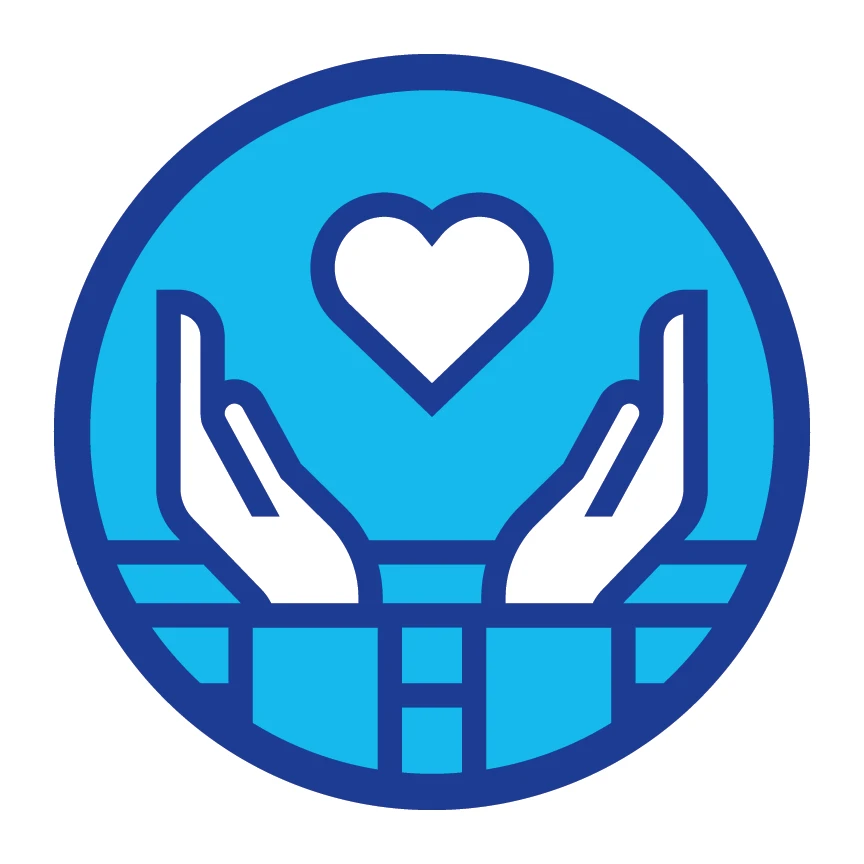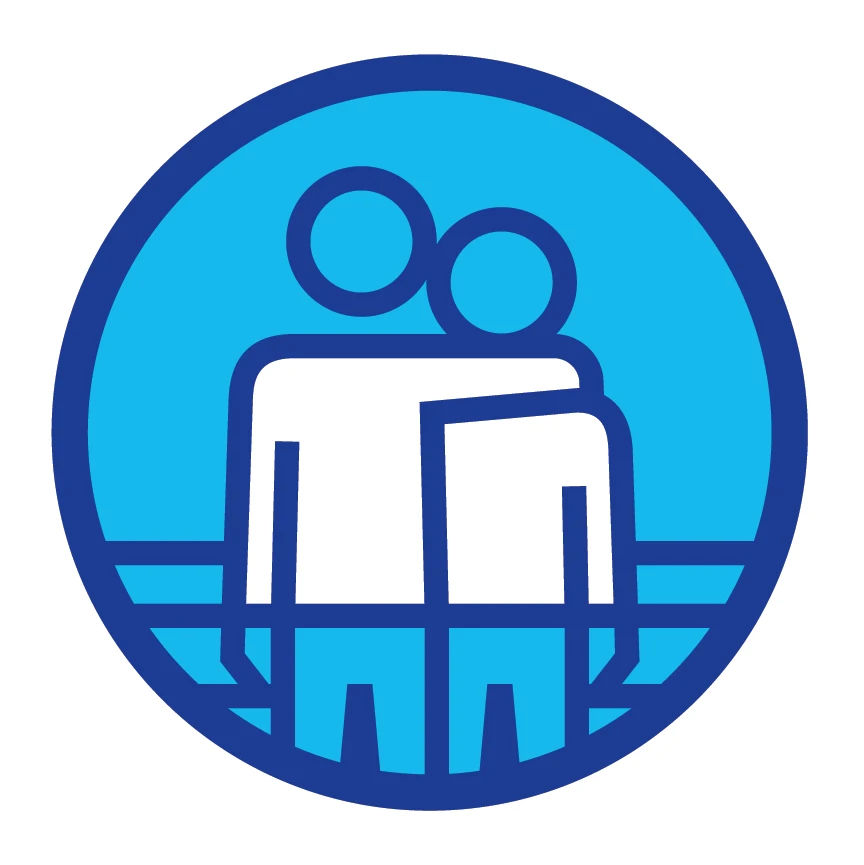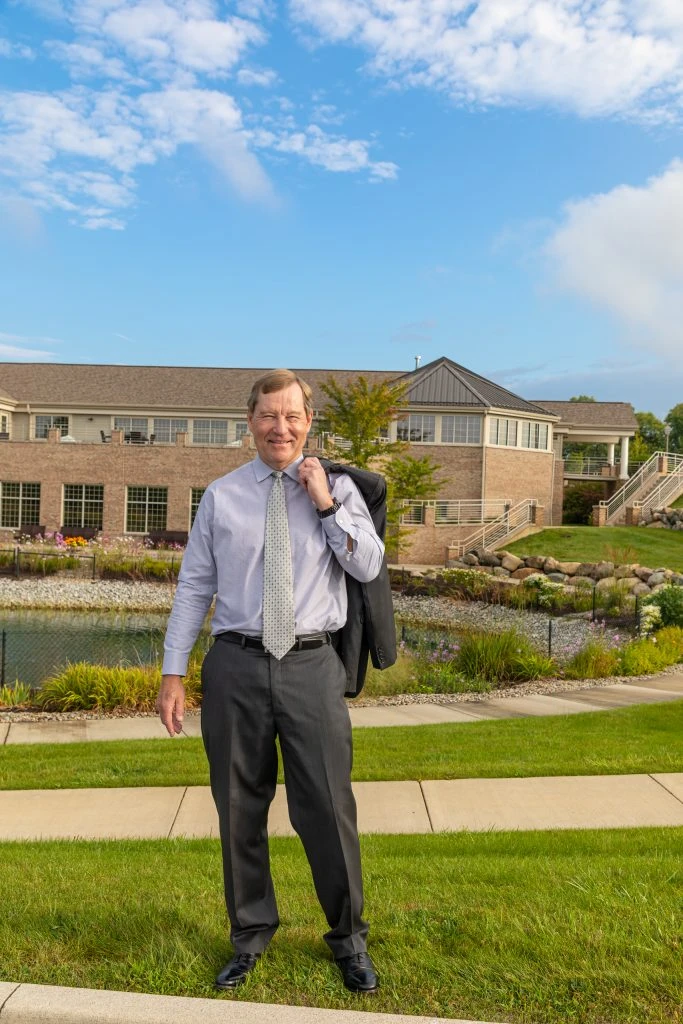
Stillwater Hospice has provided a formal grief program for more than two decades, and since 2015 those grieving the death of a loved one have a physical location where they can help process their feelings of loss in the Peggy F. Murphy Community Grief Center. One of the main reasons that Grief Center exists is because of Brian Fehlhaber: board member, family member, and community volunteer.
Along with another dozen community supporters, the board of directors and organizational leadership, Brian enthusiastically endorsed the concept that any adult in the community should be able to receive grief counseling, regardless of hospice involvement. From the beginning, there was the desire that services should be offered at no cost to the griever. Planning for the grief center began in 2010.
“So many of us on the board of directors knew it. It was just obvious there was a gap in the community,” Brian said.
It was important that there would be references to the healing properties of nature throughout the Grief Center, which would feature individual counseling offices, as well as rooms that could hold up to 150 people for presentations. An innovative “green roof” carries on the natural themes, and a water feature provides soothing sounds for those who wish to sit at its side.
Thanks to the support of donors like you, in 2015, the Grief Center opened its doors. A year later, the Grief Center was named in honor of Peggy Frank Murphy, whose family has been involved with our organization since the very beginning.
But Brian’s involvement wasn’t just because he’s civic-minded. He lost his father, his sister and his best friend in quick succession and relied on support from the grief center to help him process his feelings of loss.
“I saw a counselor after each one,” Brian said. He grew up with a mother who experienced depression, “so I can definitely relate to mental health needs.”
Men in particular need to be aware of their own mental health needs. “It’s an ego thing,” Brian said. “We think of (caring for mental health needs) as a ‘weakness.’ But you need to address this in life. It’s so beneficial to talk through the issues.”
Grief support services at the center include individual and group grief counseling, retreats and other special programming. More than 1,200 individual grief counseling sessions were held in 2021, while many more people attended one of the 15 monthly grief support groups that meet at the grief center or in other locations in northeast Indiana.
Since 2010, when planning for the Grief Center began, we have seen an increase of 286 percent in those seeking grief support services. Hospice involvement is not required to receive grief support from Stillwater Hospice; in fact, for each hospice-related client, we see two people from the community who may have lost a loved one to an accident, sudden death, suicide, homicide or overdose. The types of grief we encounter are complex, and our trained grief counselors continually educate themselves on the latest in mental health and grief support education. Our goal is to provide a quality grief and loss education program for our families and the community at large. We provide educational webinars, workshops, retreats and more to support the community. When COVID-19 struck we quickly transformed our face-to-face counseling to phone counseling and then to a telehealth platform. We also provided a series of webinars about grief during the pandemic that were viewed nationwide. We are excited to present new grief programming, such as Meditation and Mindfulness, Invisible Ink and more, in the coming year. See more offerings and our grief support calendar at Stillwater-Hospice.org/grief.
This support is critical to help grievers heal from loss. More and more, society has become grief avoidant, meaning that there are numerous misconceptions and expectations put on the mourning public. The trauma of loss affects an individual’s life emotionally, physically, socially, cognitively and spiritually. The bereaved person benefits from specific education in all of these areas to gain a better understanding of the natural process of grief. A common complaint is the feeling of isolation. Support and companioning of the bereaved has proved to be essential in their healing process.
In addition, in recent years, we have seen an increase in complicated grief. Those who have lost a loved one due to overdose, suicide or homicide may feel conflicted about how their loved one died. Normal mourning traditions have been upended by the pandemic. Unresolved grief often manifests in physical symptoms, which can increase demands on the medical system. Physical manifestations of grief can include nausea, higher blood pressure, depression, suicidal thoughts or actions, substance abuse, increased inflammation and increased vulnerability to infections of all kinds. Those who are able to find healthy ways to address their grief report a higher sense of well-being and are better able to move forward.
“There was a gap in the community,” before the Grief Center’s construction, Brian said. “It’s a benefit for anyone who has trouble dealing with death well. It’s good to talk to an expert.”



